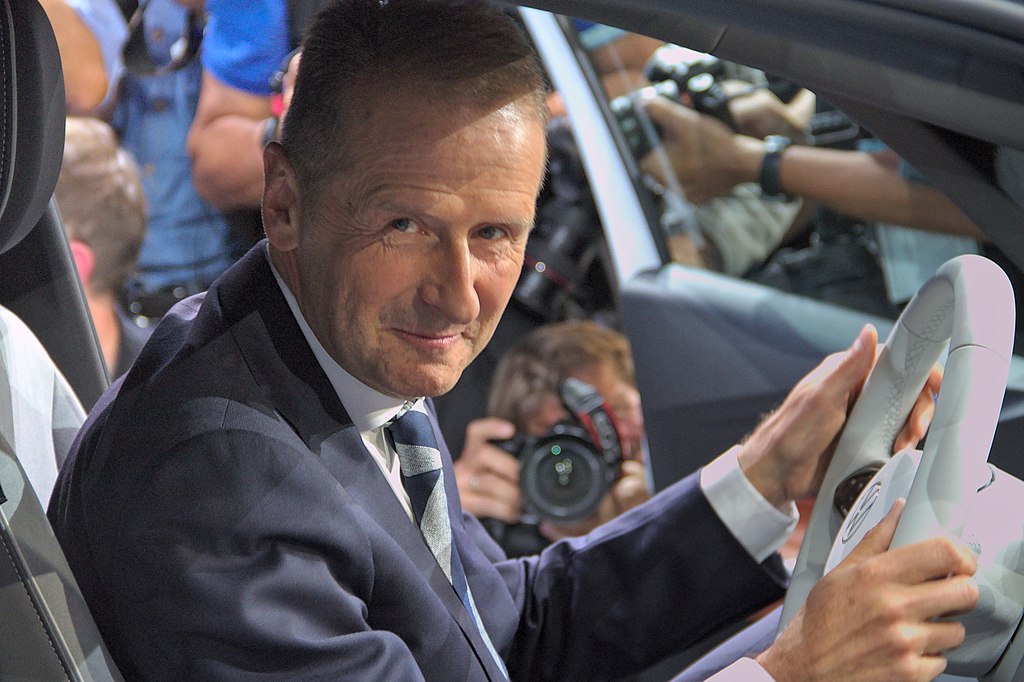Electric cars, because there is a Volkswagen-Renault clash over tariffs on China

Frightened by the impact of cheap Chinese competition on its industry, the European Commission is considering imposing tariffs on electric cars imported from China. France (Renault, Stellantis) presses on the accelerator, while Germany (Volkswagen) on the brakes
The European Commission is evaluating the possibility of introducing duties on electric vehicles imported from China to defend EU producers from possibly unfair competition. Any imposition of tariffs, in fact, will be preceded by an anti-dumping and anti-subsidies investigation aimed at verifying that the Chinese authorities are not supporting their car manufacturers to allow them to take over the European market.
CHINESE STATE CAPITALISM
The Chinese economic model can be described as a "state capitalism", in which some companies – those that the Communist Party intends to transform into national and global champions – can take advantage of huge subsidies.
The electric mobility supply chain is, precisely, one of the industries considered strategic by Beijing and the subject of great attention: it is no coincidence that China currently dominates every link in the supply chain , from the raw material to the battery to the assembled vehicle. The country is the world's largest market for electric cars and their largest producer (worth 54 percent of the global total).
WHO PRESSES AND WHO HOLDS BACK THE EUROPEAN COMMISSION ON ANTI-CHINA DUTIES
The automotive industry is one of the most important in Europe, both for its economic contribution and for the quantity of workforce employed. France – where Renault is based and where the Stellantis chain of command has moved – is pressuring the Commission to take tough measures against China. “We must not repeat with electric cars the mistakes made with photovoltaics, where we created a dependency on Chinese industry and made its producers prosper,” French President Emmanuel Macron said last month. As POLITICO wrote, French electric cars “face direct competition from Chinese alternatives”.
Instead, Brussels is held back by Germany, despite being home to one of the largest car manufacturers in the world and despite being particularly dependent on the sector. Berlin fears that European tariffs and probable Chinese counter-tariffs (and any further retaliation) could damage the sales and activities of its companies in China. Last year Volkswagen made 40 percent of its sales in the Chinese market.
THE UNITED STATES UNDERSTAND EUROPE, BUT…
On Thursday, US Trade Representative Katherine Thai said she empathized with European concerns about imports of electric vehicles from China. However, it did not encourage the Commission to adopt restrictive measures.
Interviewed by POLITICO , Thai did not want to say whether Joe Biden's administration will also conduct an anti-dumping investigation into Chinese electric cars. America, however, does not actually import cars from China and about a year ago passed a law to stimulate domestic and North American manufacturing, the Inflation Reduction Act .
“The model […] of a strategic and super-relevant industry springing up from China, creating concerns about whether or not production and trade are on a market basis, is something we've been living with for a couple of decades now ”, declared the secretary.
THE ALLIANZ STUDY ON CHINESE ELECTRIC CARS
According to a study by the insurance company Allianz , European automakers could lose a total of 7 billion euros in annual net profits by 2030 due to competition from Chinese brands such as BYD, Great Wall and Ora, which offer low-priced vehicles and good quality.
In 2022, EV sales in China were double those in Europe and the United States combined. Furthermore, the country has a competitive advantage "in almost all aspects of the BEV [battery electric cars, ed. ] value chain", such as the extraction and refining of base metals, the production of batteries and rare earth magnets.
Domestic automakers account for more than 80 percent of EV sales in China. And in 2022, three of Europe's best-selling electric car models were Chinese imports. “When BEVs come to represent all new car sales in Europe,” writes Allianz, “cars made in Europe will likely be replaced by those made in China, regardless of whether they were made by a Chinese, American, or Chinese company. European".
According to the study, European automakers could lose a total of 7 billion euros in annual net profits by 2030. However, if Chinese manufacturers manage to bring their market shares in China to 75 percent in the same year, sales in the country of European companies will suffer a decrease of 39 percent. And again: if in 2030 European imports of Chinese cars reach 1.5 million units, the economic impact on the continent's automotive industry will amount to 24.2 billion euros, 0.15 percent of the country's GDP Union in 2022.
– Read also: Can we do without China for electric car batteries?
This is a machine translation from Italian language of a post published on Start Magazine at the URL https://www.startmag.it/smartcity/dazi-auto-elettriche-cina-francia-germania/ on Sun, 18 Jun 2023 05:40:39 +0000.
